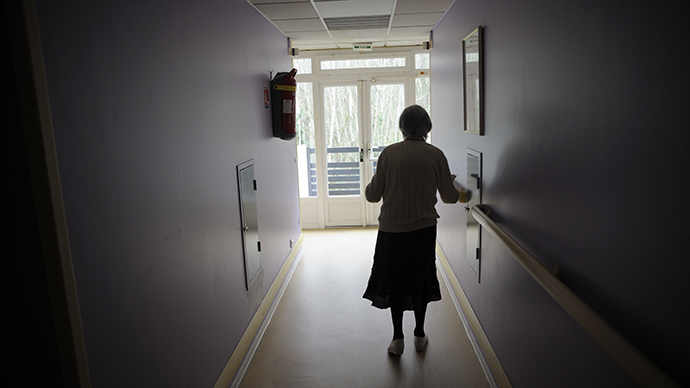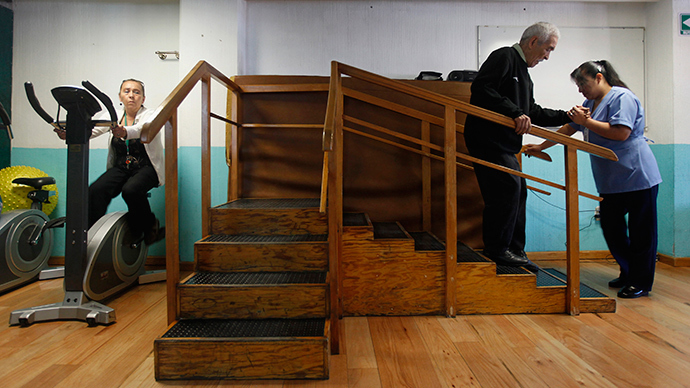End of Alzheimer's? Doctors optimistic after breakthrough

British scientists have developed a blood test that identifies the 10 proteins that show Alzheimer’s disease is imminent, thus allowing physicians to take action against the condition before symptoms start to appear.
After studying the disease for 10 years, researchers from Oxford
University and Kings College, in cooperation with UK company
Proteome Sciences, say their test can predict - with an
87-percent accuracy rate - the onset of Alzheimer's within one
year in individuals suffering memory loss.
The research took blood samples from 1,148, of whom 476 had
Alzheimer’s disease, 220 had memory problems, and a control group
of 452 showed no signs of dementia.
The team discovered that 16 proteins were associated with memory
loss and 10 of those could predict whether someone would go on to
develop Alzheimer’s.
Laboratory exams can now begin to determine which drugs halt the
onset of Alzheimer’s.
Blood proteins can predict dementia in people with MCI, but more research needed http://t.co/9vbvG5ayMFpic.twitter.com/20h1pAca7V
— Alzheimer's Society (@alzheimerssoc) July 8, 2014
The blood test is considered a breakthrough in the fight against
Alzheimer’s, which affects millions of people around the world,
because it would allow physicians to begin administering
treatment long before a “cascade of symptoms” have taken their
toll on the brain. At that stage, drugs will not help the patient
“Alzheimer’s begins to affect the brain many years before
patients are diagnosed with the disease,” said Simon
Lovestone, professor of Translational Neuroscience at the
University of Oxford, as quoted by the Guardian. “If we could
treat the disease in that phase we would in effect have a
preventative strategy.”
“Although we are making drugs they are all failing. But if we
could treat people earlier it may be that the drugs are
effective,” he added.

The medical breakthrough comes at a critical time. By the year
2021, the number of British people with dementia will reach one
million, two-thirds of the victims being women, according to
statistics from the Alzheimer’s Society. In 2012,
the last year when statistics were available, the financial cost
of dementia in the UK exceeded 23 billion pounds (US$39.4
billion), placing a huge strain on the government’s healthcare
budget.
Prime Minister David Cameron in June pledged to increase
investment in battling dementia to 122million pounds ($209
million) by 2025.
Jeremy Hunt, the UK’s health secretary, said “This is welcome
research on an issue we’re made a national priority.
“Developing tests and biomarkers will be important steps forward
in the global fight against dementia as we search for a cure.”

Dr. James Pickett, head of research at the Alzheimer's Society,
issued a statement through the organization.
"Finding a way to detect dementia before symptoms develop
would revolutionize research into the condition,” he said.
However, he cautioned that a test for Alzheimer’s does not mean
the end of the disease, not a 100 percent diagnosis rate - yet.
"These 10 proteins can predict conversion to dementia with
less than 90 percent accuracy, meaning one in 10 people would get
an incorrect result. Therefore, accuracy would need to be
improved before it could be a useful diagnostic test.
"Only through further research will we find answers to the
biggest questions around dementia, so we will watch the progress
of this study with interest," Pickett added
The test and treatment is expected to cost 100-300 pounds (around
$171-$515) and be available within two to five years.














